A popular drink in Japan, divine Royal Milk Tea is easy to make at home with Assam or Darjeeling black tea leaves and milk. You can add sugar or honey to suit your taste. It‘s a delicious beverage to serve hot or iced, or you can use it as a base for boba milk tea!
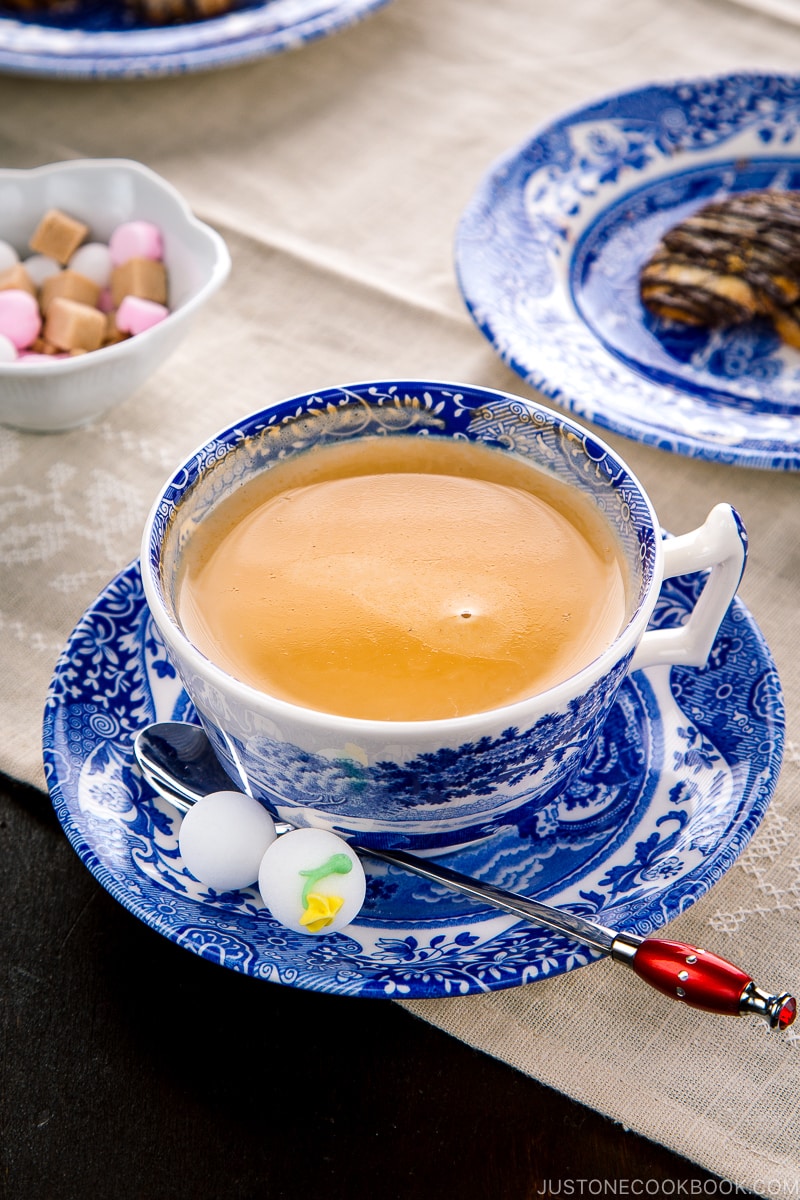
Royal Milk Tea (ロイヤルミルクティー) is a popular Japanese drink that can be found hot or cold anywhere, whether at the Japanese market, convenience store, or vending machine. Made with Assam or Darjeeling tea leaves and milk, Royal milk tea is delicious to sip on, and makes a perfect drink to serve when you have friends over for tea time.
My son and I are both royal milk tea enthusiasts. We always order the tea from cafe menus or purchase bottles from vending machines in Japan. From time to time, when we find ourselves craving a cup of milky goodness, I’d make the tea at home.
Table of Contents
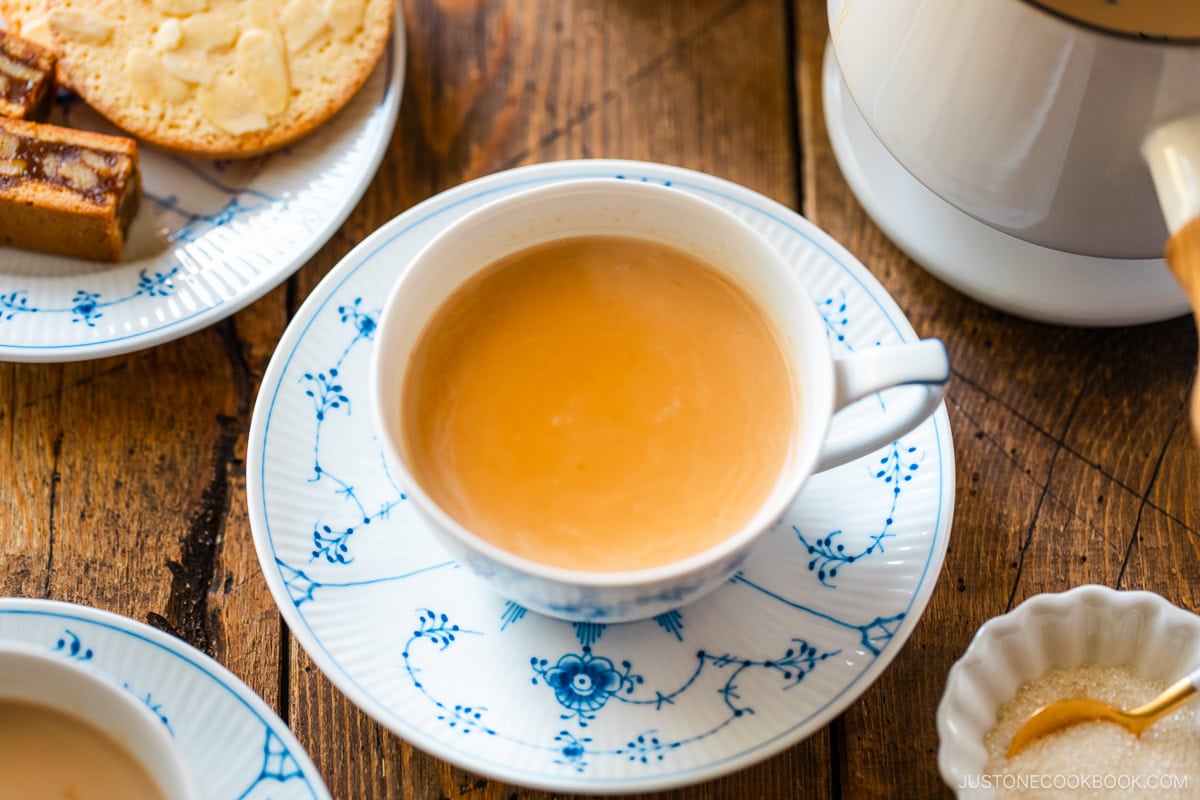
What is Royal Milk Tea?
Royal milk tea (ロイヤルミルクティー) was invented by the tea company Lipton in 1965 and quickly took Japan by storm. It captured the hearts of tea enthusiasts and casual consumers alike because of its higher milk ratio compared to other teas. The rich creaminess of the milk weakens the bitter taste of strong tea, thus creating a delicious balance. Now it is a commonplace beverage throughout Japan.
I always get royal Milk tea from Japanese vending machines. My favorite brand is Kocha Kaden (紅茶花伝) and Gogo no Kocha (午後の紅茶). Have you tried them before?
Royal milk tea is also noted for its cooking method because of its similarity to masala chai. Tea leaves are simmered in milk rather than steeped in hot water. This technique produces a richer and creamier brew that distinguishes these two drinks from other traditional teas. The only difference that royal milk tea has from the latter is that it does not include any spices such as cardamom, ginger, and cinnamon that chai might include.
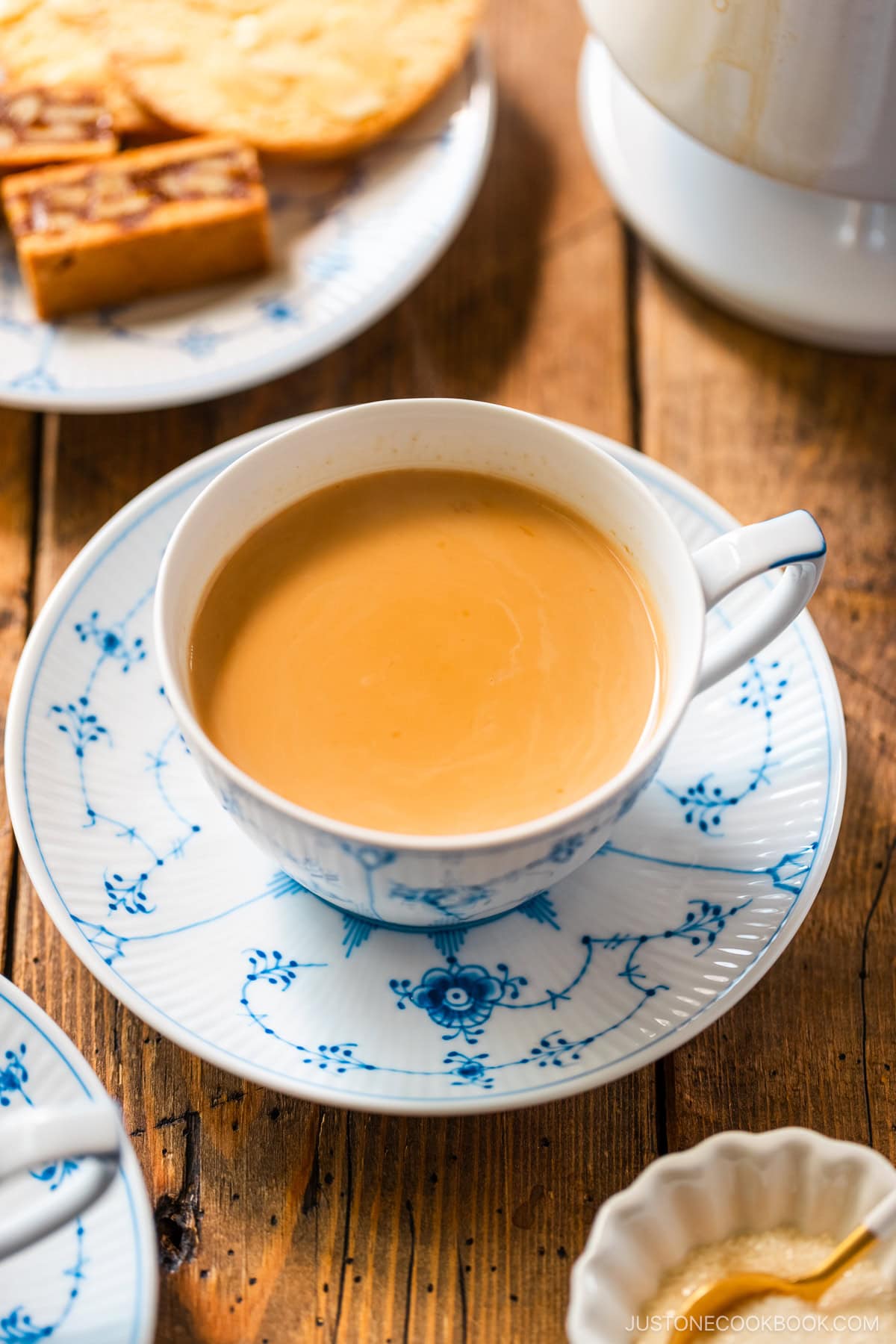
Ingredients You’ll Need for Royal Milk Tea
- Water
- Black tea leaves
- Milk – If you don’t take dairy, you can substitute regular milk with oat milk or soymilk; however, the taste might vary. I don’t recommend almond or coconut milk as they overwhelm the flavor.
- Sugar – I used organic cane sugar, but brown or coconut sugar would work. You can use other sweeteners such as agave, honey, maple, and simple syrup.
How to Make Japanese Royal Milk Tea
- Bring water to a boil.
- Add tea leaves, reduce heat, and cook for 90 seconds to 2 minutes.
- Add milk and slowly bring to a simmer.
- When the tea is about to boil, remove it from the heat.
- Strain it with a tea or fine mesh strainer and pour it into your serving cup.
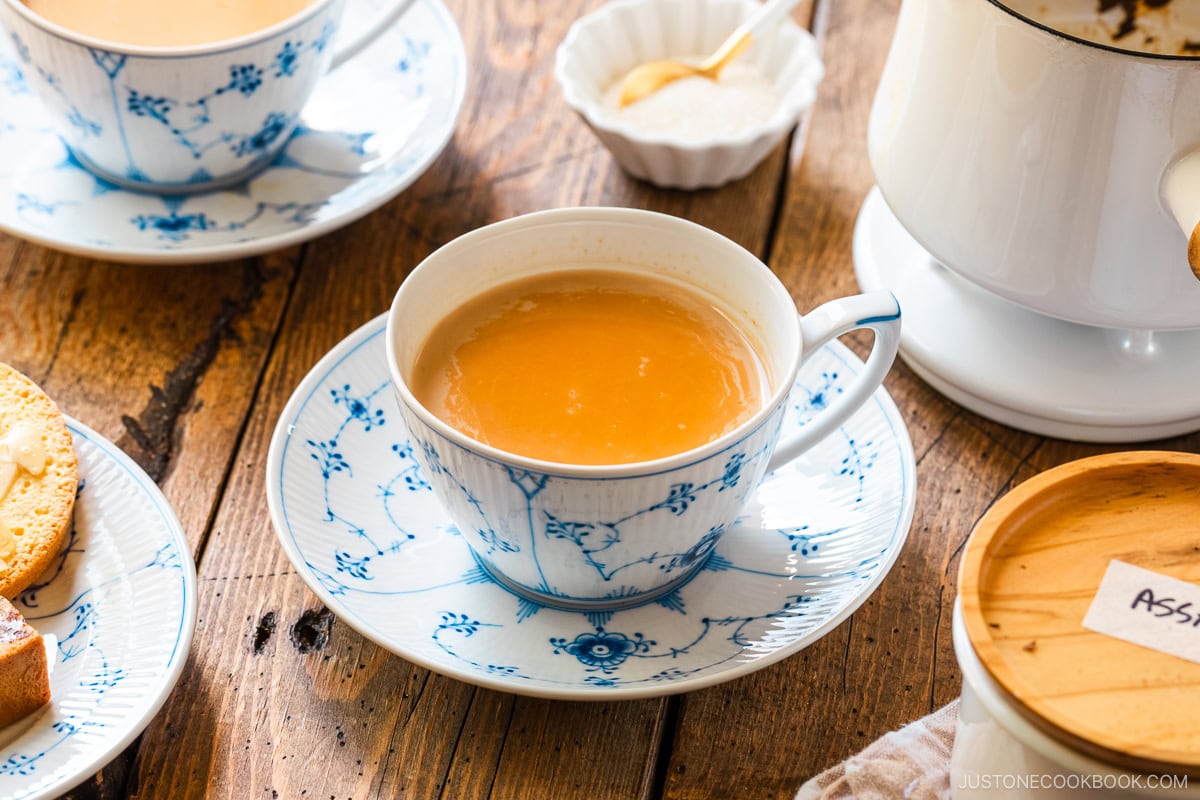
The Best Tea to Use
I recommend using a robust black tea with a strong flavor as the base for your milk tea. I like to use Assam tea as its full body and malty, spicy character come out beautifully after adding milk and sugar. It also yields a rich color for the tea. Another delicious option is the hearty Ceylon tea.
If you have English breakfast or Irish breakfast at home, you can use them too. They typically consist of a blend of Assam, Ceylon, and Tanzanian black tea.
For lighter-color tea, you can use Darjeeling tea. For a non-caffeinated version, you can use rooibos tea.
I do not recommend non-black teas, such as jasmine or green tea for milk tea.
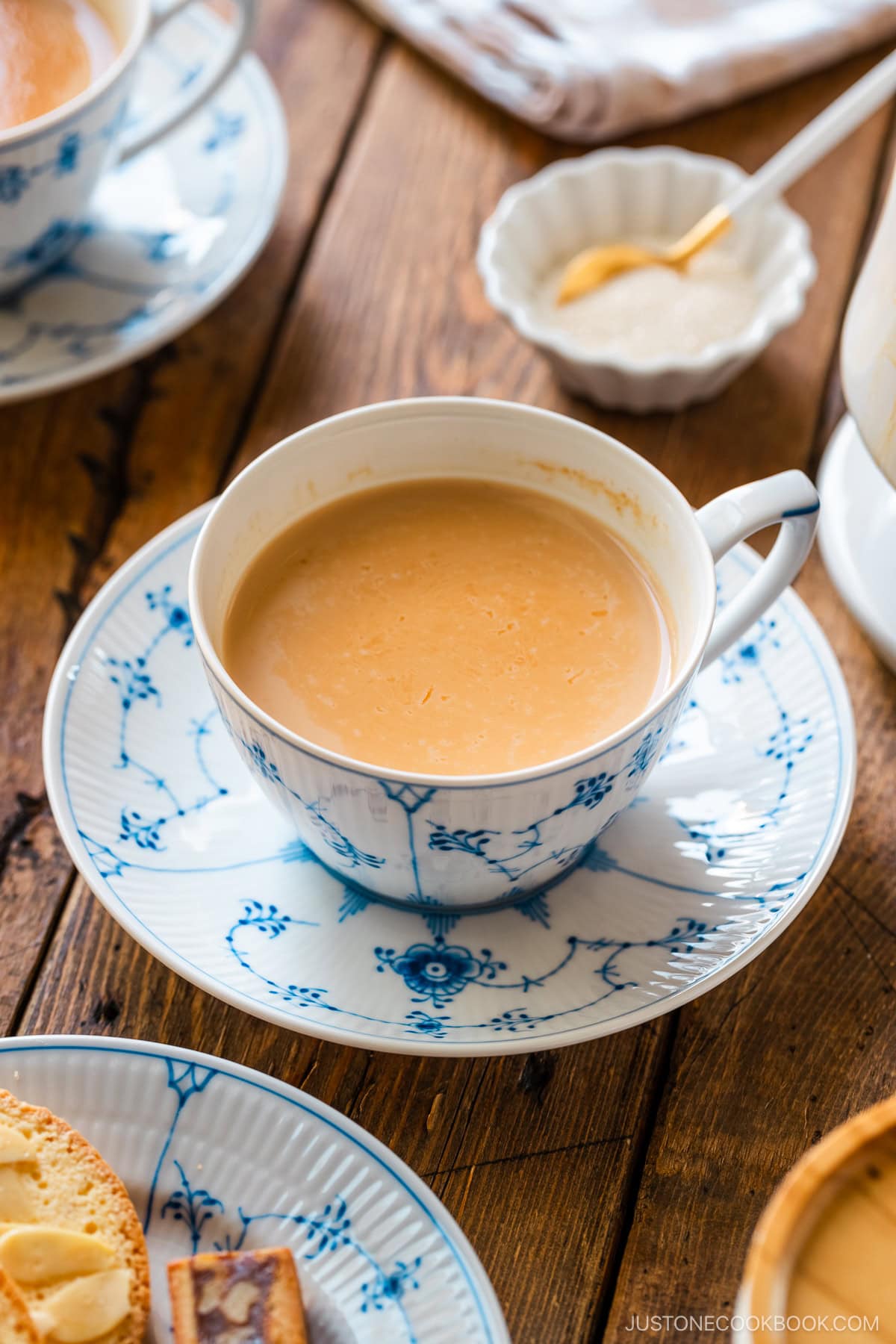
Recipe Tips and Techniques
- Use a pre-warmed cup to maintain the temperature of the tea.
- Use the teacup you’re using for serving to measure water and milk. This will save you from washing a measuring cup.
- Don’t overcook the tea leaves, as the tea gets bitter.
- Don’t leave the stove once you add the milk. Milk may boil over when you look away.
- When making iced royal milk tea, cook the tea leaves slightly longer so the ice cubes will not dilute the flavor as much.
Turn Your Milk Tea into Boba Tea
If you are a fan of boba milk tea, add tapioca pearls (also known as tapioca balls or boba pearls) to the freshly brewed royal milk tea. It will taste just like your favorite bubble tea!
Storage Tips
You may end up with some leftovers if you make a big batch.
- To store: Keep in the fridge for a day for the best freshness.
- To reheat: Microwave or use a saucepan.
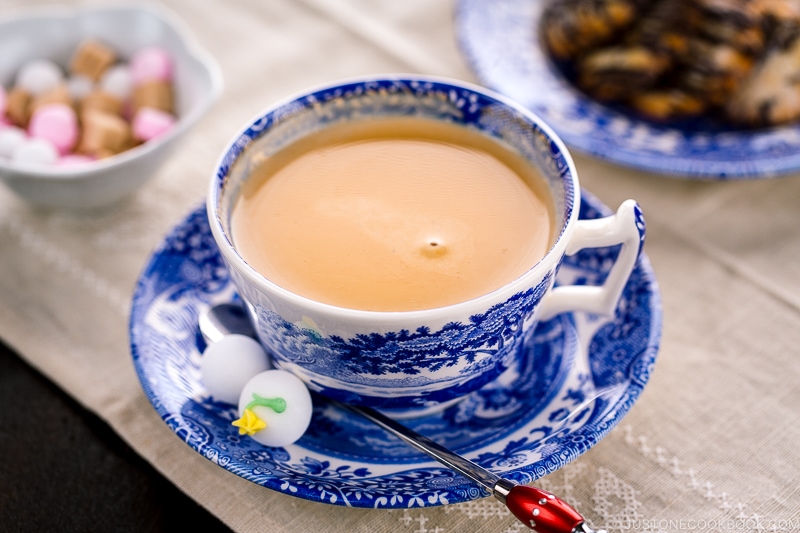
Wish to learn more about Japanese cooking? Sign up for our free newsletter to receive cooking tips & recipe updates! And stay in touch with me on Facebook, Pinterest, YouTube, and Instagram.
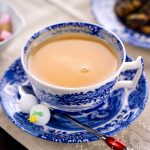
Royal Milk Tea
Video
Ingredients
- 1 cup water (or 1 regular-sized teacup 100% filled; plus more hot water to warm the teacups)
- 3 heaping tsp black tea leaves (about 9 g; use Assam for dark-colored tea and Darjeeling for light-colored tea)
- 1 cup milk (or 1 regular-sized teacup 100% filled)
- sugar (or honey; optional)
Instructions
- Gather all the ingredients. My regular-sized teacups hold approximately 1 cup (240 ml) of liquid each, so I used them to measure my water and milk for this recipe.
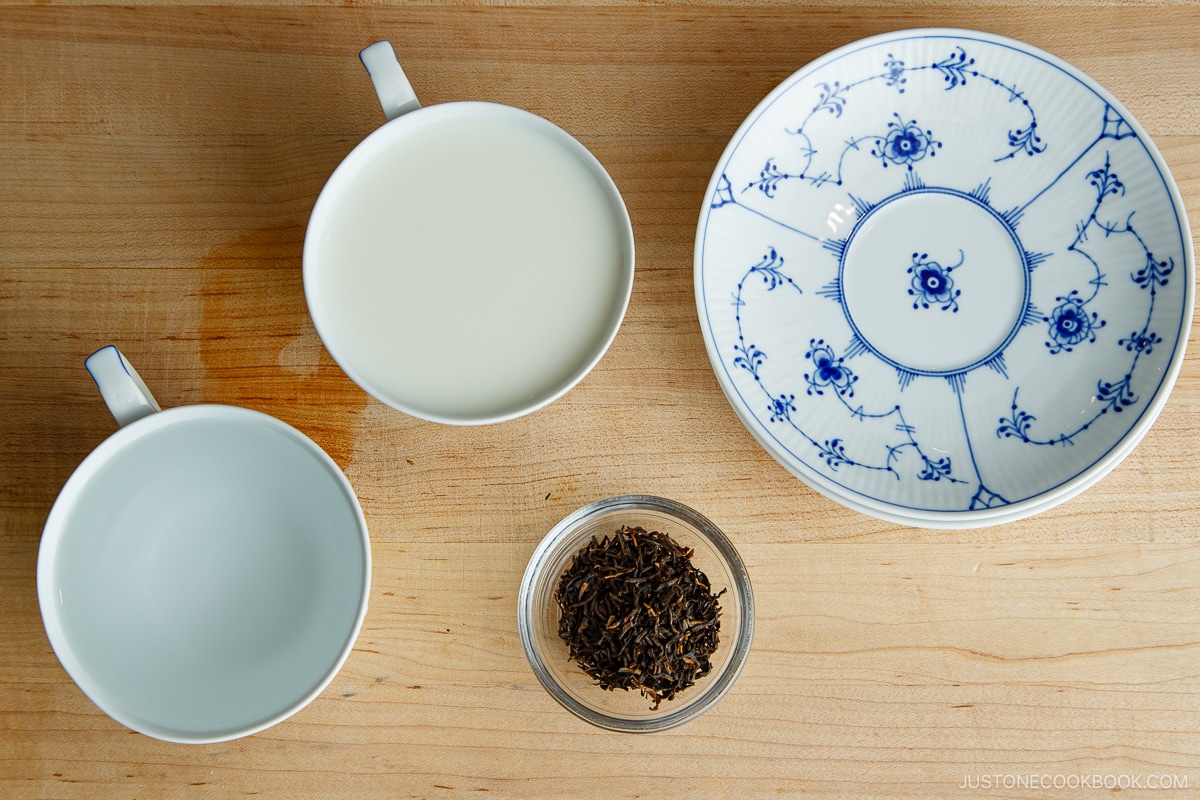
- Add 1 cup water to a milk pot or small saucepan. Cover and bring it to a boil on medium-high heat.
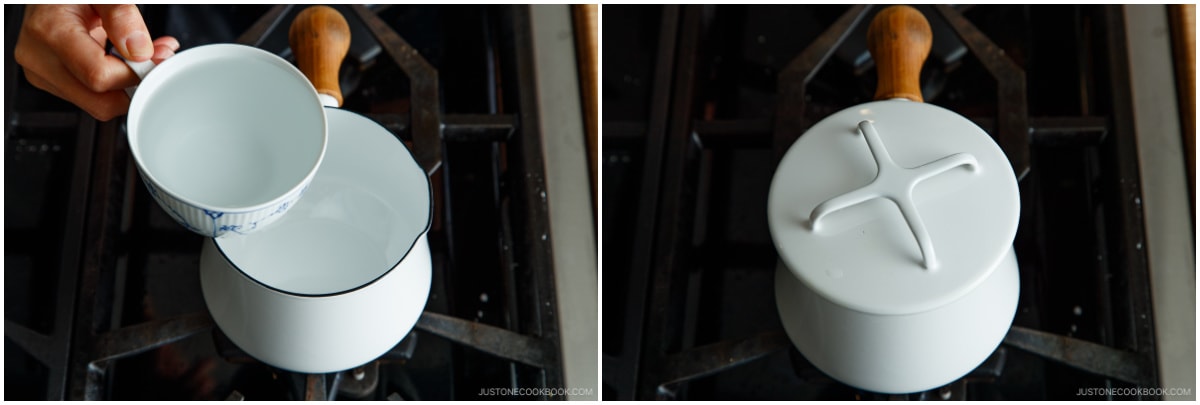
- When the water boils, stir in 3 heaping tsp black tea leaves.
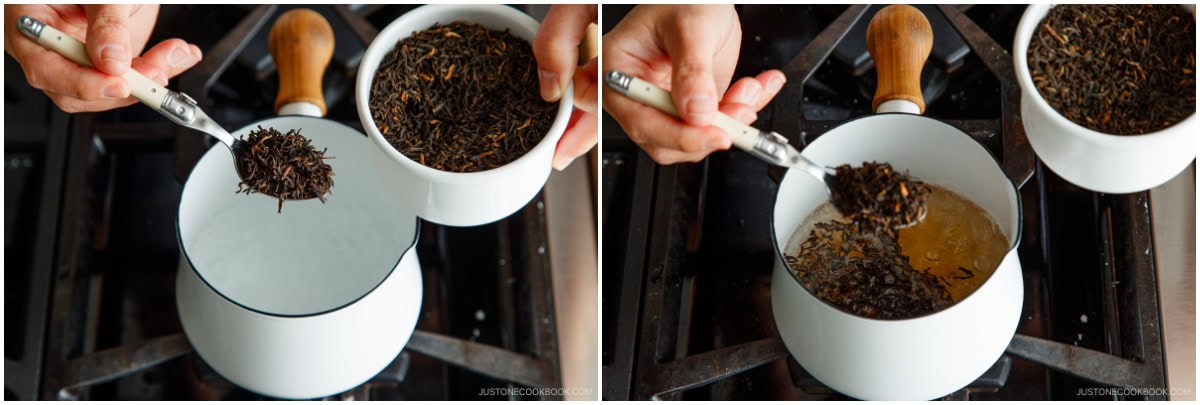
- Reduce the heat to medium low and simmer for 1½ to 2 minutes. If you‘re making iced royal milk tea, boil the leaves slightly longer to make stronger tea that the ice will dilute once served.
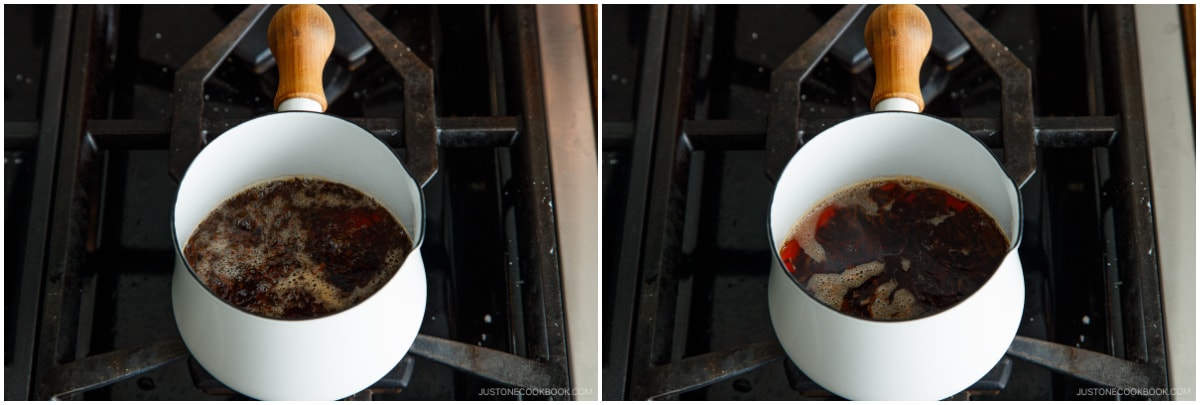
- Add 1 cup milk and slowly bring it to just simmering. Meanwhile, add hot water to your serving teacups to keep them nice and hot; drain the water before you serve the tea. Tip: If you already know how much sugar you‘d like to use, you can add it to the pot now to dissolve it before serving.
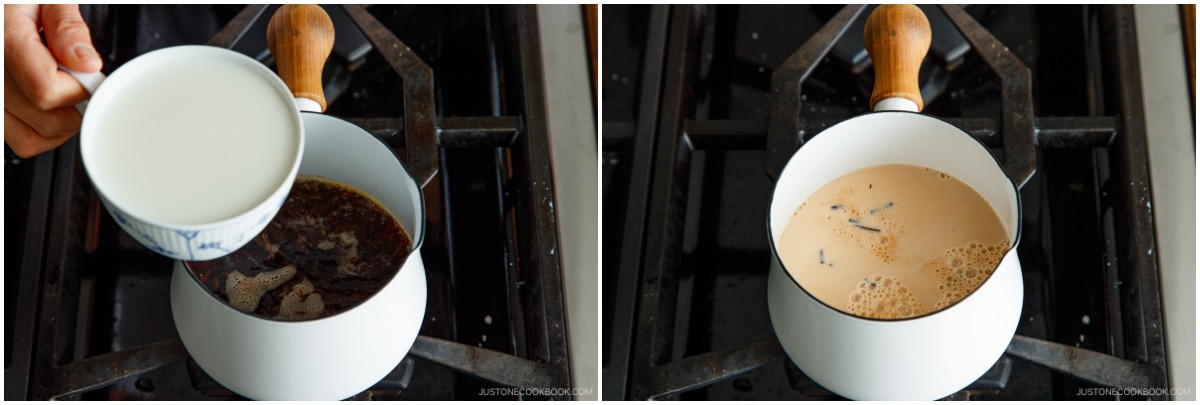
- When the tea is about to boil, remove it from the heat.
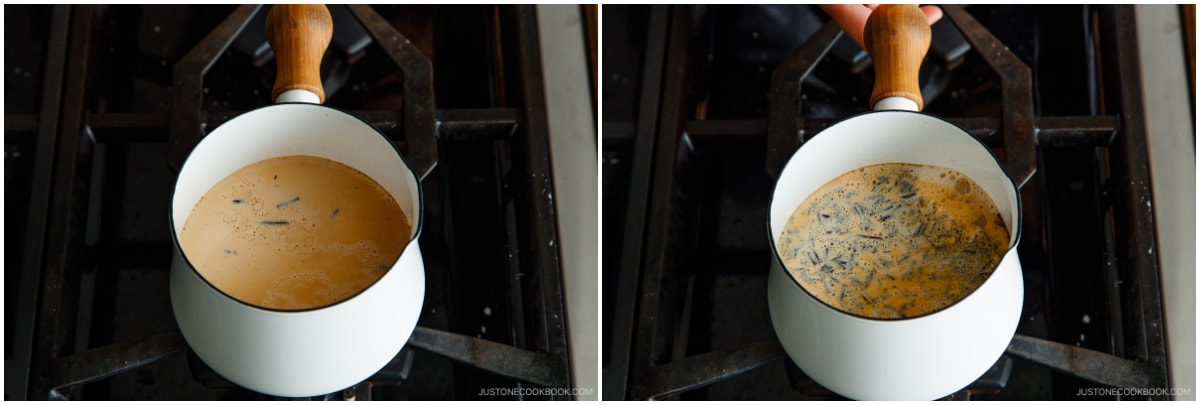
- Drain the hot water from the teacups. Pour the tea through a tea strainer or fine-mesh sieve into your heated teacups. Enjoy!
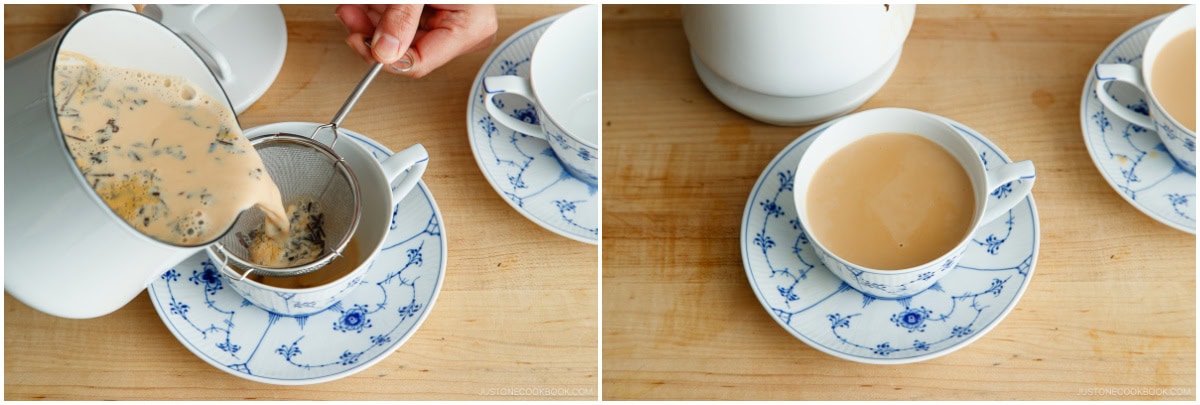
To Serve
- Serve with sugar or honey to sweeten it to your liking. Enjoy it with some homemade Matcha Cookies, Black Sesame Cookies, or Strawberry Mochi! You can also use it as a base for Boba Tea.

To Store
- I recommend making it fresh, but you can keep the milk tea in an airtight jar in the refrigerator for up to a day for the best freshness. Microwave or use a saucepan to reheat.
Nutrition
Editor’s Note: This post was originally published on March 26, 2014. It was republished with new step-by-step and final images on May 15, 2024.
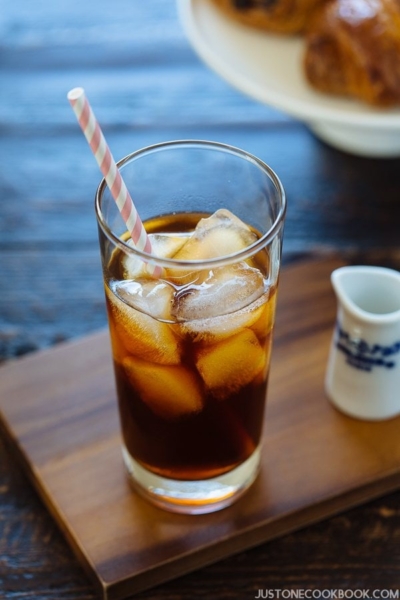
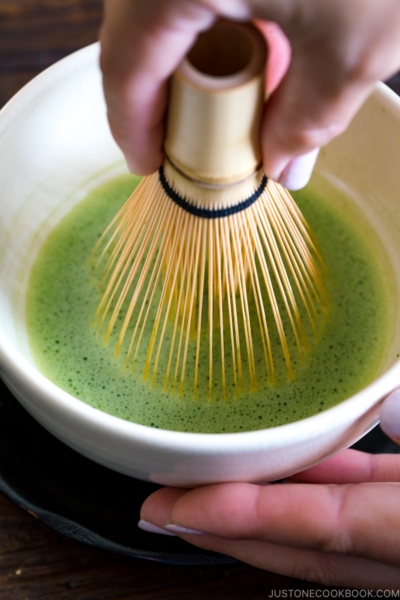
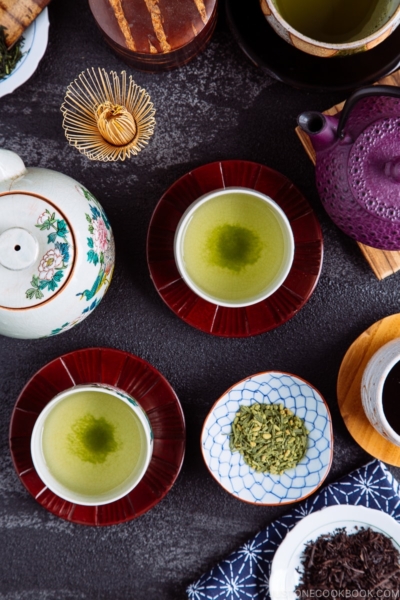
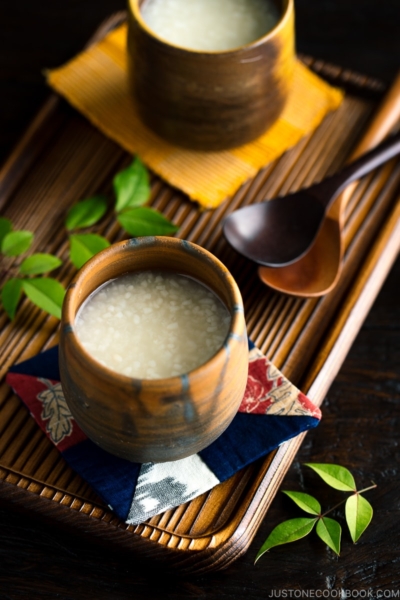
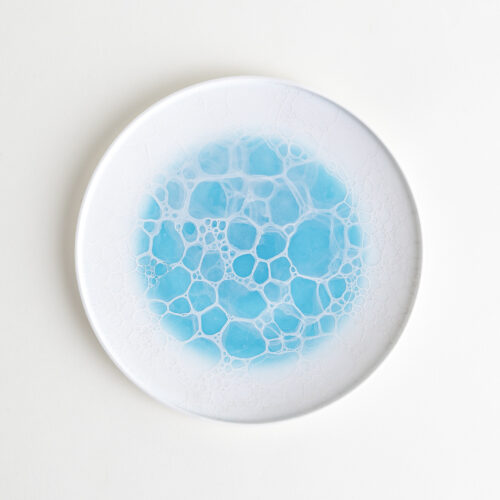
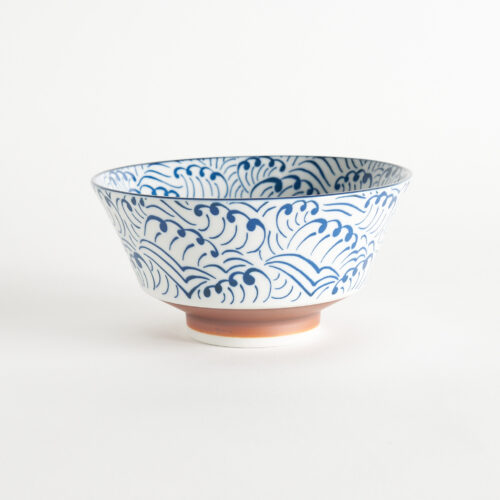
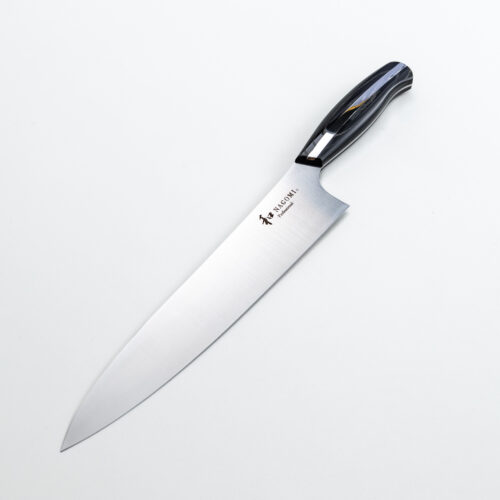
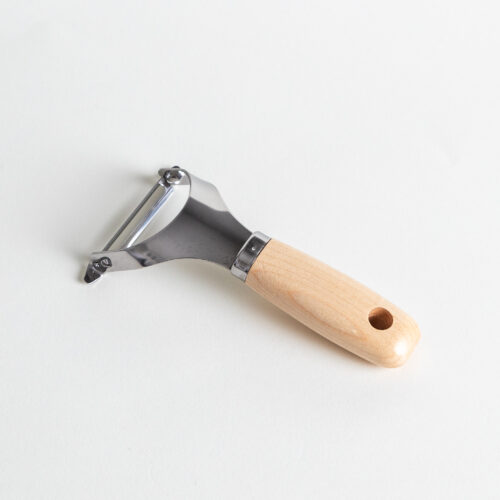
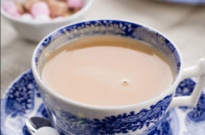
This was EXACTLY the recipe I’ve been looking for! It’s perfectly creamy, but not heavy. With boba it would be better than any place I have near me, but is sooooo nice on its own. I followed the recipe to a T with (pretty average quality) Darjeeling tea and 😚👌✨ it was PERFECT! my uni days just got a whole lot better, I’m gonna be making this very often ((: thank you!!
Hello Kat! We are happy to hear you enjoyed Nami’s recipe!
Thank you for taking the time to review her recipe. 🥰
I’ve been making this recipe for a few years, and my husband and I both love it! I just made it again as we finished packing the car for holiday travels. We found this recipe after several attempts to recreate the chilled bottled tea in Japan. It was the only one to suggest Darjeeling, and that was the key! I’m sure at least some use a blend, but Darjeeling alone (and a pretty low quality one at that) matched what we could remember.
Tip: We use a gold lined reusable coffee filter to strain this. Tea strainers leave a lot more grit than coffee filters, which can turn your tea bitter even if you’re drinking it quickly.
Hello Natalie! Thank you for trying Nami’s recipe and sharing your experience with us!
Hi Nami, should I use warm up the milk before adding to the pot? or cold milk is fine?
Separately can I find the two sets of teacup shown here in JOC goods?
Thank you.
Hi Salina! Nope, you don’t need to warm up the milk before adding it to the pot. Use cold milk and slowly bring it to hot. The teacups shown here are Royal Copenhagen so we don’t sell them on JOC Goods. 🙂
I tried this recipe and love it. I have a large mug and it fits the two cups of tea perfectly. No sharing! ^u^ I will definitely try the iced version too. If you’re a tea lover and liked this recipe, definitely try the JOC Hojicha hot or iced recipe it is a different but equally delightful and refreshing tea.
Hello, Lilly! We’re so glad you enjoyed this recipe!
Thank you for your nice feedback, as well as your love and support. Happy cooking!
Made this morning and it was just lovely. Thank you! But I do have one question: do I keep the heat on medium low after adding the milk or do I turn it up?m to reach a simmer? Basically wondering how long to let the tea steep with the milk. I feel like getting it back to a simmer could be a different amount of time for everyone. So about how long does it take for you? I hope that makes sense!
Hello, Hannah. Thank you for trying Nami’s recipe!
Nami kept the heat on medium-low, and it took about 5 minutes for the milk to begin simmering again. If you prefer a stronger flavor, we recommend simmering it for a longer period before adding the milk. We hope this information helps!
Hi Nami! Thanks for this recipe. I fell in love with iced milk tea when I was in Japan. I’m wondering if you have any instructions for making it iced instead of hot? Thank you so much.
Hello, Jessie. Thank you for trying Nami’s recipe!
Nami suggested making the tea strong to use as a cold drink. Hopefully, this post’s “Recipe Tips and Techniques” section helps! 🤗
Cold Royal Milk Tea fast became my craving every day during my trip in Japan. Usually I started my day at the nearest Combini and bought a tamagosando and a Royal milk tea for breakfast on the go when I was going to that days exiting spot to explore. Here in Sweden Lipton isn’t the brand you think of when you think about quality tea… But their royal milk tea was the best! I wish I could get it here but no. Only one brand shows up in specialist asian shops and that one is good enough but not the same… 😉 I make my own version at home to of course and just think back on my journey in Japan. I mostly use Earl Grey for this and I think it gives it an extra flavor. Next year I will go back, and this will probably be the first thing I buy when I land on Narita airport. 😀
Hi, Peter! Thank you for reading Nami’s post and sharing your experiences in Japan!
We hope you enjoy a variety of milk teas in Japan next time!😃
Thank you for this, I love Royal Milk Tea but don’t like ultra processed food or bev for my health so I’m glad you made a recipe to make at home!!
Hi Maya! We are glad to hear you enjoyed homemade milk tea recipe!
Thank you so much for your kind feedback!
Thank you for adding boba to the recipe! I’ve a question. Have you seen any beautiful tea cups online in US?
Hi, Salina! Thank you for reading Nami’s post.
We don’t know any reputable teacup-specialized online stores. Nami collected the Royal Copenhagen set at a time.😀
I don’t know why but when I add the milk I keep waiting forever until it starts boiling and when it finally does the tea still tastes too much like hot milk with a little bit of flavour.
Hi Dirk! Thank you for trying Nami’s recipe!
The flavor of tea varies depending on the brand of tea leaves used. We recommend trying a different batch or brand to see if you notice a difference.
You can also add a few more tea leaves if you’d like. In terms of heating time, you can increase the heat to speed up the process.
We hope this was helpful!🙂
On watching the video it appears you are using a tablespoon for the tea leaves before putting them into the water. Just to clarify, it’s 2 heaping teaspoons for 1 cup and 3 teaspoons for 2 cups. Thanks.
Hi Chuck! Thank you for trying Nami’s recipe!
Nami is using a teaspoon. Please try following the amount on the ingredient list. 😊 We hope you enjoy it.
This royal milk tea is so nice. It really brought out the flavor of tye tea. I thought it would be bitter but not at all. I really liked it.
Hi Kelly! We are so happy to hear you enjoyed Royal Milk Tea!
Thank you very much for trying Nami’s recipe and for your kind feedback!🥰
So good, I added a little bit of vanilla creamer and it was delicious. I think I’ll use this method for all of my milk teas now!
Hi Mandy! We are so happy to hear you enjoy Nami’s method of making milk tea.
Thank you very much for your kind feedback.